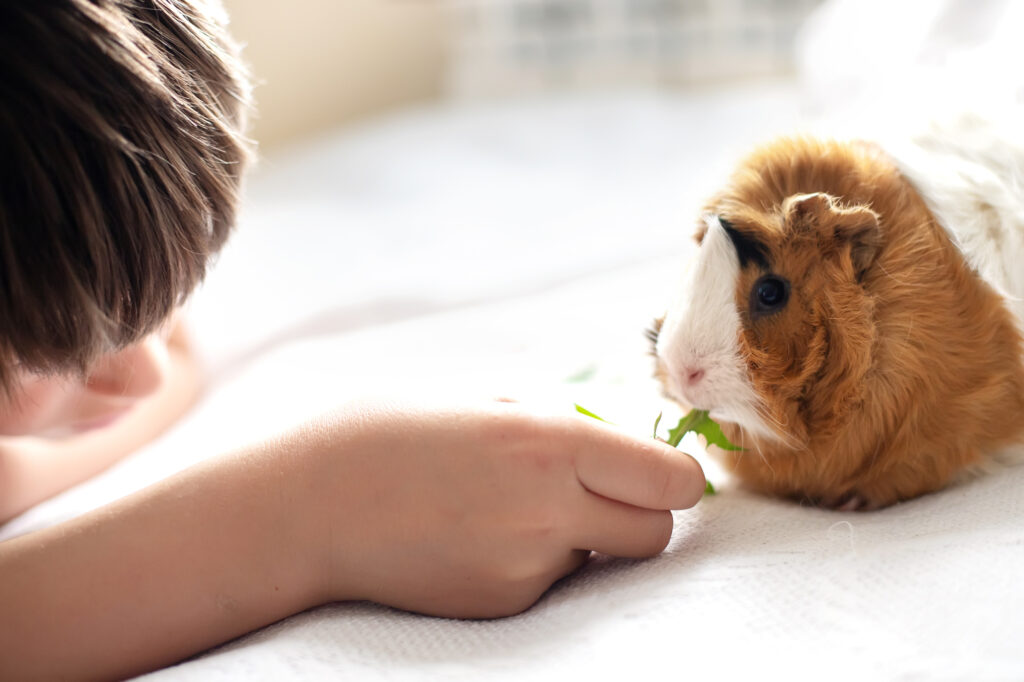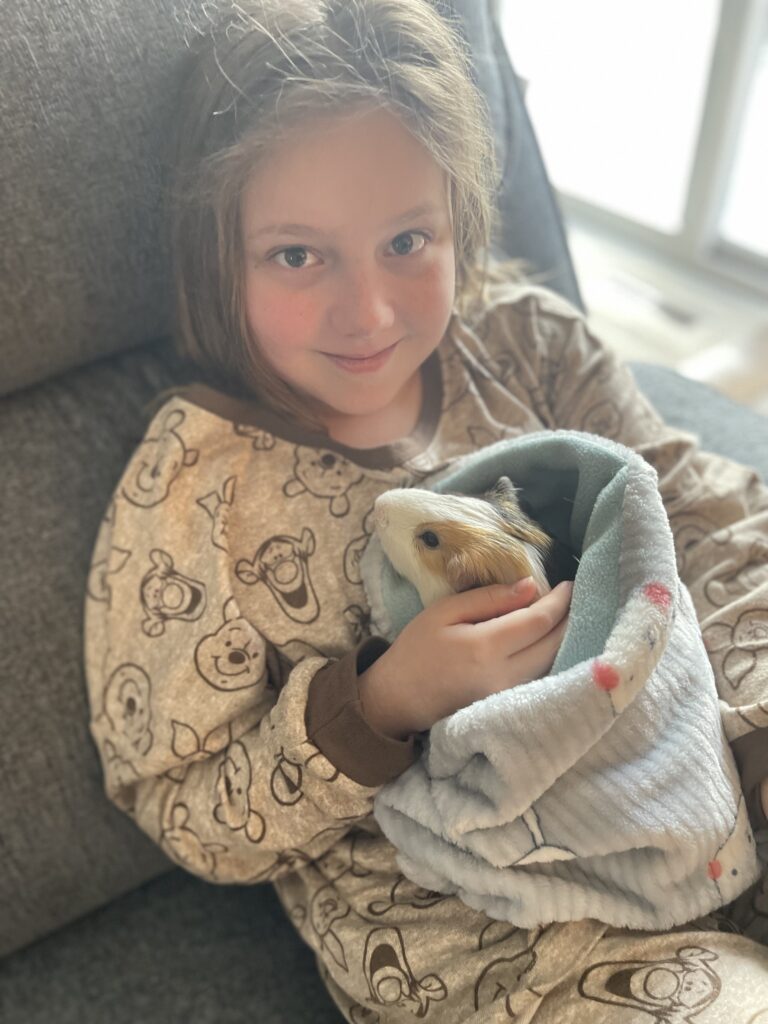Beyond Cuteness: the Emotional Genius of Guinea Pigs
Introduction to Guinea Pig Intelligence
When you catch sight of a guinea pig, their irresistible charm is sure to capture your heart. But what if I told you there’s more to these furballs than meets the eye? The intelligence of a guinea pig can not be underestimated.
Yes, beneath that adorable exterior lies a surprising intelligence and a complex emotional landscape. These are not just pets; they’re social animals bursting with emotional intelligence and empathy, capable of forming deep bonds with their human companions.

Guinea pigs navigate their environment and relationships with an astonishing level of sophistication. As we peel back the layers of guinea pigs’ behavior and social dynamics, you’ll discover the emotional genius that makes these creatures extraordinary companions. So, read on to unveil the profound connection between guinea pigs and their capacity to elevate our lives beyond their cute facades. Key Takeaways:
- Discover the unexpected intelligence of guinea pigs: Beyond their cuteness, guinea pigs possess a surprising depth of emotional and social intelligence.
- The emotional compass of guinea pigs: These animals serve as remarkable emotional support, attuned to the feelings of their human friends.
- Training and bonding: Training guinea pigs not only showcases their smartness but also strengthens the emotional connection with their owners.
Cracking the Code: Understanding Guinea Pig Communication
Have you ever noticed your guinea pig tilting its head at the sound of your voice? This adorable behavior is a testament to their mastery in communication, particularly when it comes to forming bonds with their human families and fellow guinea pig companions.
Communicating with your guinea pig goes beyond simple recognition of their name or obedience to commands; it’s about strengthening your connection and being attune to their needs and emotions. Their remarkable ability to sense and respond to emotional cues, be it excitement or concern in your tone, highlights their deep sensitivity to the emotional dynamics of their environment. This not only fortifies your bond but also aids in understanding their well-being.
Their perceptive nature is what makes guinea pigs such cherished companions, always in sync with the emotional climate of their home. It’s this keen awareness that allows them to be so in tune with the emotions swirling around them, further enhancing their endearing qualities.
The Emotional Compass: Guinea Pigs as Support Animals
Imagine, after a long and stressful day, you come home to find a tiny creature, your guinea pig, eagerly waiting to offer comfort. It’s like they sense the turmoil stewing inside you. Guinea pigs, with their emotional support animal prowess, excel in tuning into our emotions, making them perfect tiny therapists.

Their astonishingly perceptive nature allows them to detect changes in your mood, whether it’s the cloud of depression or the edgy spikes of anxiety. They respond with affectionate nuzzles or gentle sounds, an act of empathy that speaks volumes. It’s endearing how a guinea pig might cuddle up to you when you’re feeling down or perform a joyful little dance to brighten your spirits.
This genuine connection and understanding showcase why they’re not just pets but invaluable companions in navigating the rollercoaster of mental health.
Teaching Tricks and Building Bonds
Have you ever considered the bond that forms when you spend time teaching your guinea pig new tricks? Training these savvy little creatures, from getting them to recognize their own names to performing adorable tricks or following you around, is not just about showcasing their intelligence. It’s a deeply engaging process that reinforces their emotional connection with you.
By using positive reinforcement, like treats or gentle petting, you’re not only encouraging their behavior but also emphasizing that you’re a trustworthy ally. This kind of interaction is a clear demonstration of their capacity for memory and a testament to their perceptive nature. So, grab some tiny treats, and remember, patience and consistency are your best friends in this journey. You’ll be amazed at how these social animals respond, strengthening the emotional and intellectual bond you share.
Intelligence Comparison: Guinea Pigs vs. Other Pets
You might be tempted to think all small pets offer the same mental sharpness, but let’s set the record straight. When stacked against the household favorites – dogs and cats – guinea pigs certainly showcase their flair not just in emotional intelligence but in specialized talents like understanding commands and recognizing their names.
Now, if we pivot to compare guinea pigs with their closer relatives, like rabbits, things get even more interesting. Yes, rabbits might boast more neurons, hinting at a slightly higher ladder of intelligence. But, where guinea pigs truly outshine is their profound emotional intelligence and memory, particularly in contrast with smaller rodents such as hamsters and mice. This emotional attunement, combined with their social aptitude, makes guinea pigs not just pets but companions capable of supporting and enriching our lives on a very human level. They’re not just nibbling away at your cabbage; they’re tuning in, engaging with us in a way few pets do.
A Look into the Heart of Guinea Pigs
As we wrap our journey into the heart of guinea pigs, it’s clear these creatures are far more than mere bundles of fluff. Their social and emotional intelligence astounds, reflecting a depth that surpasses their adorable exterior. Guinea pigs offer us a unique glimpse into the animal kingdom’s emotional fabric, demonstrating empathy, emotional support, and a perceptive nature that connects deeply with humans.
Their ability to learn tricks, recognize their owners, and respond to emotional cues showcases an intelligence that’s not just instinctual but deeply connected to their social behaviors. They’re not just pets; they’re emotional support animals that can sense, respond to, and even alleviate our mental health struggles. This emotional genius makes them remarkable companions, particularly for those battling depression and anxiety.
But it’s not one-sided. Guinea pigs thrive on interaction, bonding, and the emotional security we provide. Engaging with them, through training or simply spending quality time, strengthens this bond and supports their emotional and mental well-being. Understanding their intelligence and emotional capacities allows us to appreciate these incredible creatures beyond their cuteness, enriching our lives and theirs. So, let’s commit ourselves to nurture their intelligent and emotional needs, ensuring our furry friends lead joyful and enriched lives alongside us.
Read next: Unveiling the Truth: Should Your Child’s First Pet Be a Guinea Pig?
What Research Shows
The study titled “Social learning of a spatial task in guinea pigs (Cavia porcellus)” published in the journal Animal Cognition in 2014, investigates the ability of guinea pigs to learn a spatial task through social learning. The researchers conducted experiments to determine if guinea pigs could learn to navigate a maze to find a food reward by observing a trained demonstrator guinea pig.
The study involved two groups of guinea pigs: observers and demonstrators. Demonstrators were trained to complete a maze to find a food reward, while observers watched the demonstrators perform the task. After the observation period, the observers were given the opportunity to complete the maze themselves.
The results showed that observer guinea pigs were able to learn the spatial task more quickly after watching the demonstrators, compared to a control group that did not observe a demonstrator. This indicates that guinea pigs are capable of social learning, specifically in the context of learning a spatial task.
The study contributes to the understanding of social learning in guinea pigs and suggests that they can learn from the actions of their conspecifics, which has implications for their social behavior and cognition.
